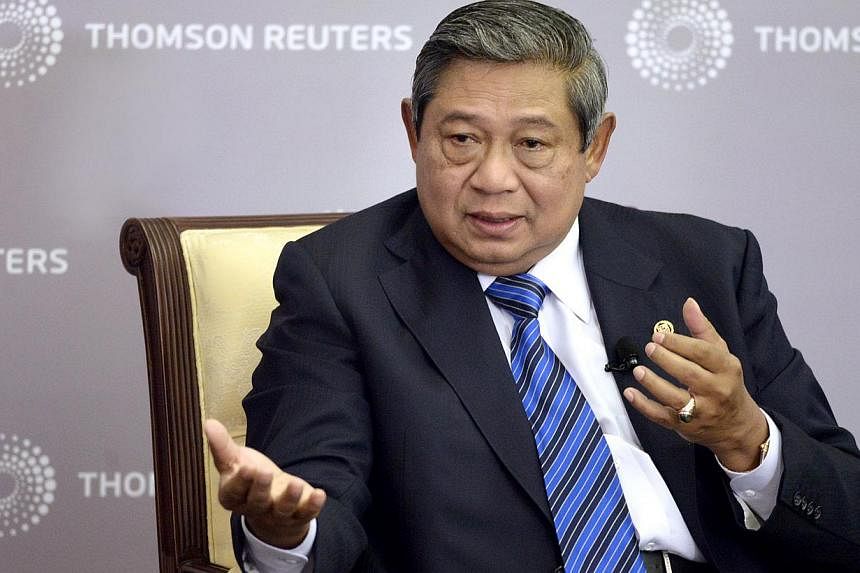SINGAPORE - Asia is set to continue to grow and prosper, raising the living standards of hundreds of millions of people in the next generation, but its continued success is not a preordained destination, former Indonesia president Susilo Bambang Yudhoyono said on Saturday.
Countries have to press on and work together to the keep the region on this path of progress, Dr Yudhoyono said in a keynote address at the inaugural Singapore Forum at the Shangri-La Hotel.
"No one really thought that the strategic and economic weight of the world would shift to Asia. Many thought we were so far behind the West that it would take generations for us to catch up with them," he said.
"Yet, these are the signs of the times today... My forefathers lived in darkness and their ambition was quite simple: to be free. Free from colonization, from oppression, and from poverty. Today's generation has much bigger ambitions. They are not only free: they are also free to aspire, to excel, to achieve, and to succeed."
Even as he spoke of his optimism for the region's future, Dr Yudhoyono, who was Indonesia's sixth president and held office from 2004 to 2014, cautioned that hard work lies ahead.
"We need to work hard and stay the course to get there, because, as has happened to other regions, a golden decade can turn into a lost decade in a moment. We therefore need to nurture all the good things that are already brewing in our region and spread them around," he said.
In his speech, Dr Yudhoyono highlighted four forces that will continue to change the face of Asia for the better.
They are: the phenomenal growth of the middle class, the rapid spread of entrepreneurship, growing connectivity and social media, and regional integration.
By 2050, an additional three billion people are expected to join the middle class in Asia - automatically reducing the number of poor people in the region by three billion. And the growing middle class will affect the physical, mental, economic, and political make-up of a society.
Meanwhile, the rising number of entrepreneurs correlates to a country's degree of dynamism and progress.
"Entrepreneurship is important because it signals a shift in the state of mind of a society. It signals can do-ism. It signals positive energy. It signals independence and innovation. It reflects confidence and risk taking," he said.
"That is why I am convinced that the rapid contagion of entrepreneurialism will be one of the most powerful game-changers for Asian economies."
And while the 20th century saw most nations preoccupied with the issue of sovereignty, connectivity would drive the 21st century, keeping nations linked to the world economy and the global marketplace of ideas and empowering individuals.
"This is how young people in the Middle-East - many of them poor and unemployed - brought down strong governments during the Arab Spring. Today, social media has become the most powerful and ubiquitous tools of democracy and liberty, and politicians ignore the power of social media at their own peril," said Dr Yudhoyono.
The last force, he said, was one he spent a decade as president trying to promote - regionalism, as he delved into Southeast Asia's experience in bringing 10 diverse countries at varying stages of development together.
"Our ASEAN experience demonstrated that we can evolve both national identity and regional identity at the same time," he said.
"Regionalism has also delivered good dividends: ASEAN countries have become more secure, more united and more prosperous because of it... I believe that if this healthy regionalism can also be made to grow in other parts of Asia, then the impact on Asia will be far-reaching. The Asian Century will have much better prospects."
Dr Yudhoyono also said that even as these four forces continue to power Asia forward, the region will need to brace itself for possible turbulence thrown up by shifts in the global balance of power.
He made a call for the "geopolitics of cooperation", where powers - large, medium or small - take into account and focus on what they had in common over what divided them.
"Any durable and peaceful 21st century world order would much depend on how much we can deviate from the unhealthy zero-sum mindset of the 19th and 20th century, where power shifts were always accompanied by new conflicts and even war," he said.
"We need to find a new path forward."
Read Dr Yudhoyono's full speech here.



